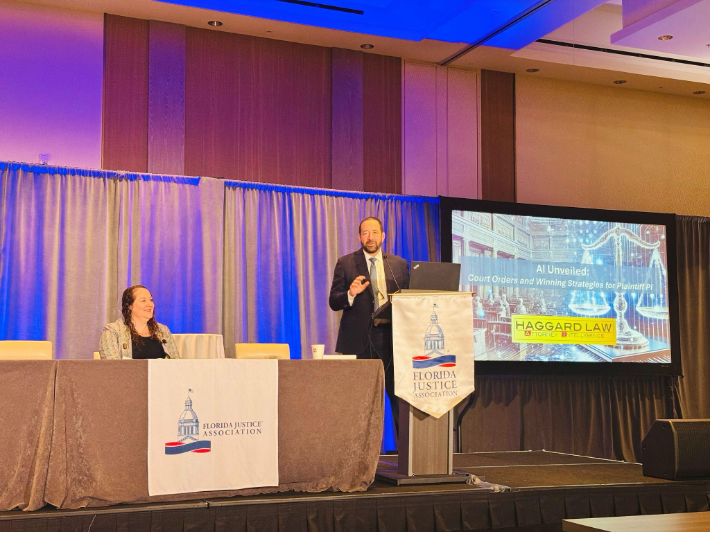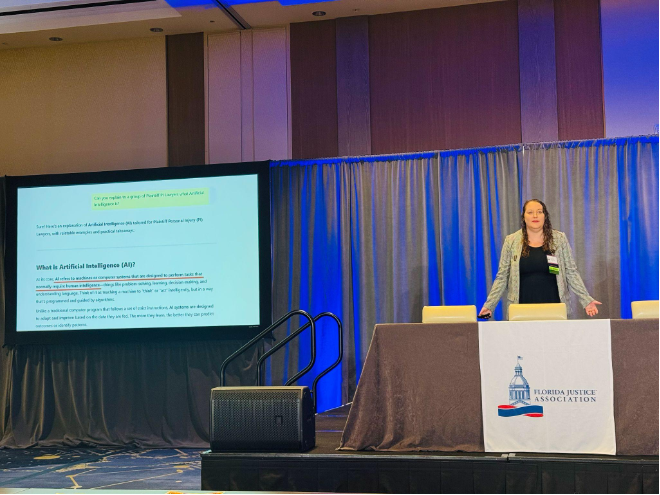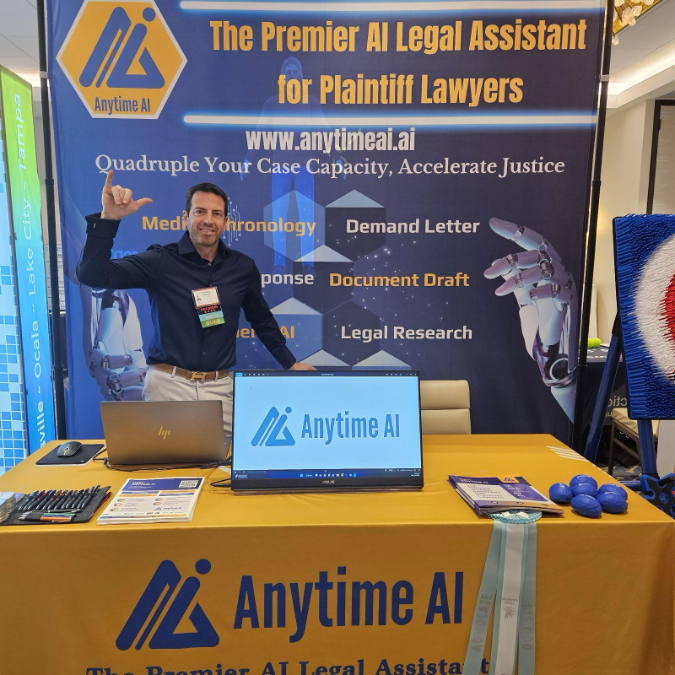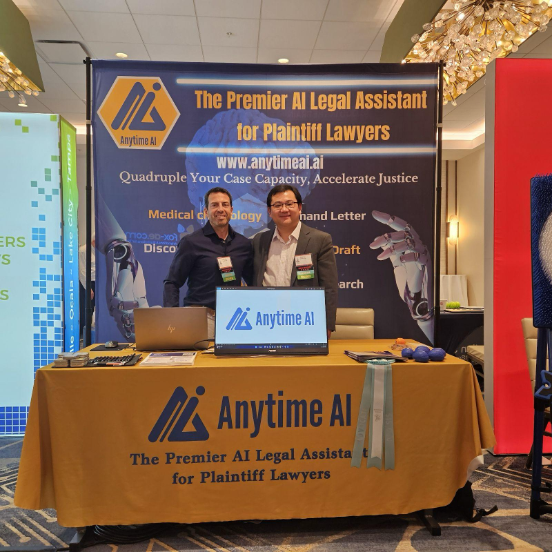The Florida Justice Association (FJA) Workhorse event last week, February 17 through the 21, marked a transformative moment for the legal community. With a dedicated day to artificial intelligence (AI) and a dynamic panel discussion, the event underscored that AI is not just a buzzword but an industry imperative, especially for plaintiff and personal injury attorneys handling high-volu0304-me, high-stakes cases.
AI Is No Longer Just a Buzzword, It’s an Industry Imperative

One of the most compelling messages at the event was the evolution of AI from a trendy topic into a critical tool for legal practice. The decision by FJA to dedicate an entire day to AI signifies that legal professionals are ready to move beyond initial curiosity and start integrating AI into their daily workflows.
This new reality is especially significant for attorneys managing complex cases where efficiency and precision are paramount. AI solutions are proving to be indispensable in automating routine tasks and processing vast amounts of data, thereby enhancing productivity and enabling legal teams to focus on more strategic, client-centered work.
Empowering Trial Lawyers to Focus on Advocacy, Not Administration
A major highlight of the event was the discussion around the transformative impact of AI on legal practice. By streamlining administrative tasks, AI technologies like Anytime AI free trial lawyers from the burdens of repetitive paperwork. This shift allows attorneys to dedicate more time to core responsibilities such as developing case strategies, negotiating settlements, and presenting compelling arguments in the courtroom.
The reallocation of time and resources not only boosts productivity but also aligns with the FJA’s mission to ensure fair representation for all clients. With more energy focused on advocacy, legal professionals are better equipped to safeguard access to justice and deliver superior client outcomes.
Bridging Innovation with Tradition
Historically, plaintiff and trial attorneys have approached new technology with a degree of caution, concerned that the rush to innovate might compromise the time-honored principles of legal advocacy. However, the FJA Workhorse event clearly demonstrated that tradition and innovation can coexist harmoniously.

The AI panel showcased how integrating cutting-edge AI solutions can enhance legal expertise without undermining the profession’s core values. By responsibly leveraging AI, law firms can streamline operations while maintaining the integrity of legal advocacy. This balanced approach not only preserves traditional practices but also paves the way for a more efficient, modern legal landscape.
Leading the AI Conversation

A standout segment of the event came from the insights shared by Chris Nash, Director of Business Development, Anytime AI. Chris emphasized that AI is no longer a speculative addition to the legal toolkit, it has become a strategic asset. According to Chris, the dedicated AI day and the engaging panel discussions reflected a broader shift in the legal industry: attorneys are actively shaping how AI is integrated into practice, rather than passively awaiting technological change.
Chris noted that the adoption of AI technologies is empowering lawyers to focus more on their primary role—advocating for their clients—by alleviating the weight of administrative tasks. This empowerment is essential for maintaining high standards of representation and ensuring that legal professionals can meet the evolving demands of their clients. His observations underscore a proactive approach to technology adoption, one that is not only about improving efficiency but also about reinforcing the ethical foundations of legal practice.
Workhorse 2025: From Discussion to Action
While the discussions at the event were rich with forward-thinking ideas, the real impact of AI will be measured by its practical application. Workhorse 2025 has set the stage for a new era where AI transitions from theoretical discussion to actionable implementation. Over the coming months, law firms are expected to integrate AI tools into their daily operations, transforming theoretical benefits into tangible outcomes.
Future iterations of the Workhorse event are anticipated to feature case studies, success stories, and best practices that illustrate how AI is reshaping legal workflows. This progression from discussion to action not only signals a milestone for the legal industry but also reinforces the ongoing commitment to innovation that is essential for effective legal advocacy.
Conclusion
The FJA Workhorse event was more than just a conference, it was a call to action for the legal community. By dedicating an entire day to AI, the FJA has affirmed that technology is no longer an optional luxury but a necessary component of modern legal practice. The insights shared during the event, including those from Chris Nash, highlight a transformative journey: from reducing administrative burdens and empowering attorneys to blending innovation with traditional advocacy.
For attorneys and law firms striving to remain competitive and effective in today’s fast-paced legal environment, embracing AI is a strategic imperative. The evolution of AI at Workhorse 2025 is not only about efficiency; it is about reinforcing the core mission of legal advocacy, ensuring access to justice and delivering outstanding client outcomes.
As the legal landscape continues to evolve, staying informed and proactive about technological advancements will be key. With companies like Anytime AI leading the charge, the future of legal practice is poised to be smarter, more efficient, and fundamentally more client-centered. The FJA Workhorse event has clearly set the path forward, and it’s now up to the legal community to embrace this new era of AI-driven innovation.


